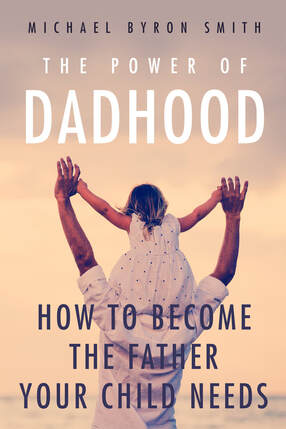 Photo by author
Photo by author I’ll narrow in on an article in The Atlantic written by David Brooks. “The Nuclear Family Was a Mistake,” he wrote, “The family structure we’ve held up as the cultural ideal for the past half-century has been a catastrophe for many. It’s time to figure out better ways to live together.”
This article is long and well researched, but with conclusions that confuse me. I’ll mention a few.
First of all:
Per Brooks. “The shift from bigger and interconnected extended families to smaller and detached nuclear families ultimately led to a familial system that liberates the rich and ravages the working-class and the poor.”
The assumption is that you don’t have to lean on the extended family as much if you are successful, and you won’t connect. While this may be true, he suggests it ties people through need, not love. Furthermore, the extended families of poor people are usually poor themselves, without the means to help. I find my extended family wants my involvement. All I have to do is show love and interest.
Brooks states, “Among the highly educated, family patterns are almost as stable as they were in the 1950s; among the less fortunate, family life is often utter chaos. There’s a reason for that divide: Affluent people have the resources to effectively buy extended family, in order to shore themselves up.”
DUH! The problem lies in the fact that coming from a chaotic family creates more chaotic families that continue to struggle. It requires a child of “less fortunate” families to take matters into their own hands to break free from the struggle. They often have to do it independently because their extended family will not be capable of helping or cheering them on - because they are chaotic. Is it difficult for a child from a poor, chaotic family to break free? No! It’s not difficult to do; it’s just difficult to realize when in that environment!
The Brookings Institute found that these three simple rules will help one avoid poverty:
- Graduating from high school.
- Waiting to get married until after 21 and do not have children till after being married.
- Having a full-time job.
If you do all those three things, your chance of falling into poverty is just 2 percent. Meanwhile, you’ll have a 74 percent chance of being in the middle class, becoming one of the more affluent families. You will create a ‘breakaway from poverty family,’ and your children will have the advantages other affluent families enjoy, therefore helping to grow a more self-sufficient society. Brooks, to me, is a ‘chicken or the egg’ argument. What comes first, affluence, then success, or success, then affluence? Wealth can bring success with its advantages. But success from good ideas like the three steps above can bring wealth. Being highly educated is undoubtedly advantageous for success, but not being stupid (or remaining ignorant) is an even more significant advantage.
Secondly:
Nuclear families are successful, “so long as women are relegated to the household.”
I live next to a large neighborhood where both of my daughters also reside. This neighborhood is full of nuclear families where both parents work while others choose to have one parent stay home with their younger children. I know many of these families through my daughters, and they seem to thrive. Yes, they are relatively but not significantly affluent, but these mothers are not relegated to the household. Of course, there are challenges. Women should not be ‘relegated’ to motherhood if that’s what you call it (I don’t). Neither should motherhood be belittled. Maybe the father stays home as many more do these days. Maybe neighbors and relatives help with the children, or one or both parents work part-time. Allowing your younger children to learn socialization skills in pre-school is also helpful, allowing parents time for other activities. Neither mom nor dad nor child can have everything they want at once.
Having a well-balanced family requires sacrifices, just like any other endeavor. Maybe your dreams of travel, writing a novel, or big promotions may have to wait. To do so means you have found that raising human beings as successful people is just as important and impressive as becoming CFO or ‘employee of the month,’ assuming you have that talent in the first place - because not everyone does. Are you crying about not being able to chase your dreams? Then don’t have children. If you already have them, be patient; they will only take up 20-30% of your life - and they deserve being a priority. Parents can work it out by balancing, not pouting.
Lastly:
“For many people, the era of the nuclear family has been a catastrophe. All forms of inequality are cruel, but family inequality may be the cruelest. It damages the heart.”
This statement may be true, but do we want to throw the baby out with the bathwater? Do we want to eliminate the nuclear family, so dysfunctional families don’t have to feel bad for themselves? We would love equal and fair outcomes for all, but life is not fair, not all people work as hard as others, and bad luck can come to any of us.
It was difficult and maybe cruel for my siblings and me to be raised in a dysfunctional family as we were. However, most of us now have functional families of our own—those who don’t are not blaming anyone outside of the family. Certainly, none of us blamed successful families for the deeds we performed, causing distress within our own family.
Summary:
There are many more conclusions in the Brooks article with which I beg to differ. When it comes down to it, it depends on what lens you choose to view these issues that ultimately drive your conclusions. But beyond my thoughts and biases is common sense. While not possible for all, is not a nuclear family the best way for most children to thrive? The ‘best’ for ‘most’? Not the best for all, or the worst for some, but the ‘best for most’? I don’t consider that opinion. I consider it self-evident
#powerofdadhood




















